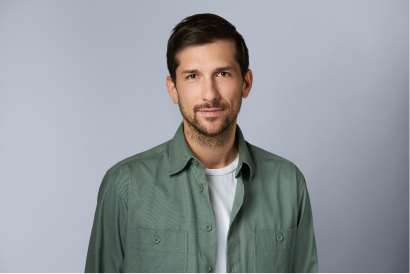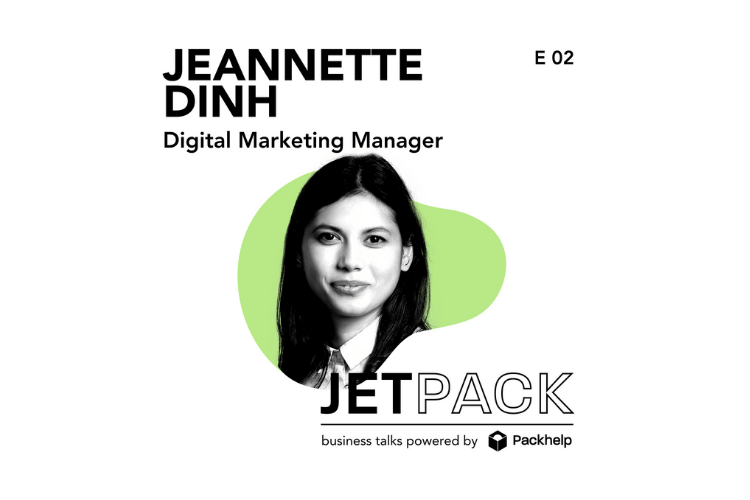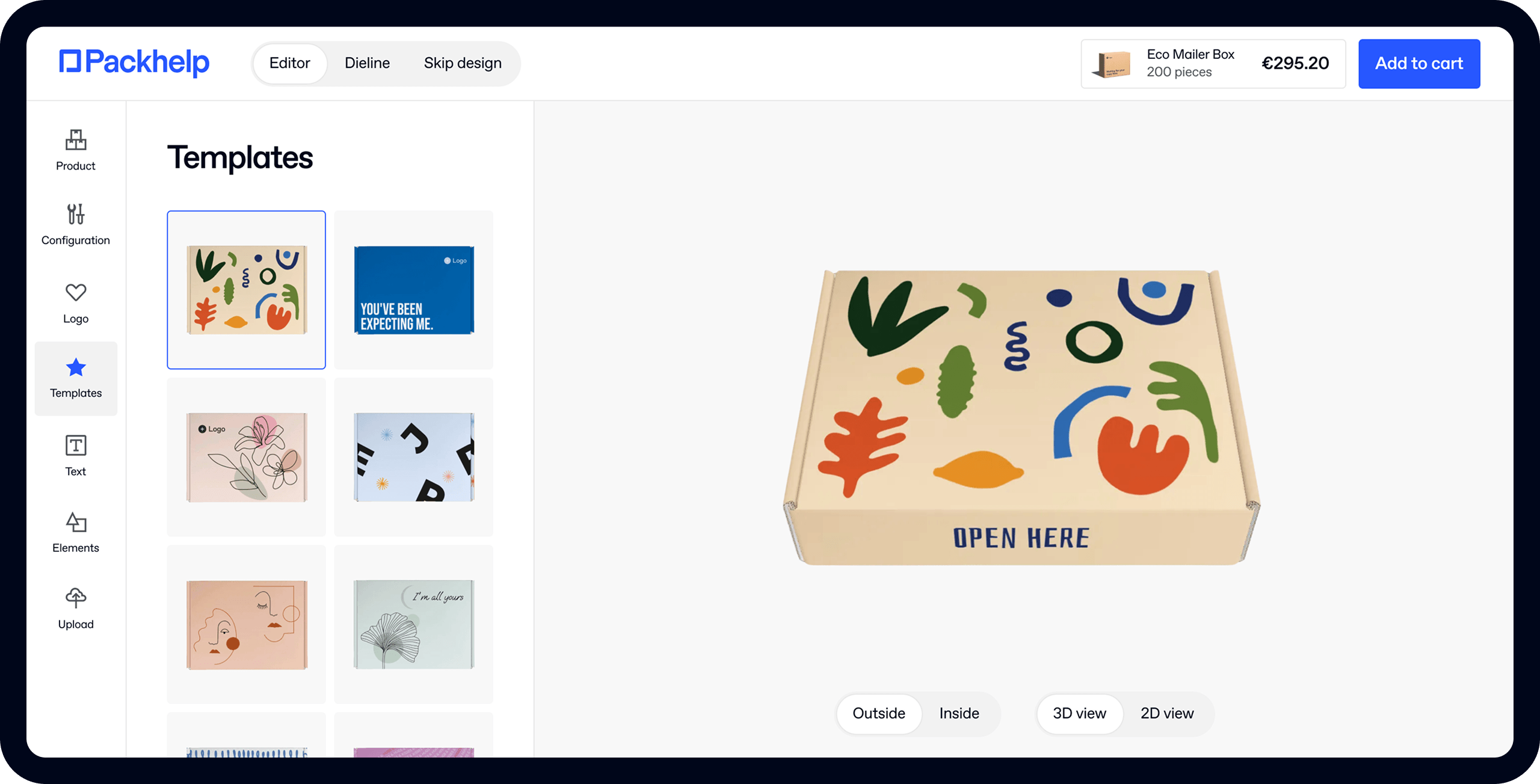Podcast: The Jetpack Ep. #2 – A licensing & recycling chat with Jeannette Dinh from Lizenzero

- 200+ templates & patterns
- Real time 3D packaging preview
- Upload logo and choose brand colours

Subscribe now! Receive 15% discount.
Don’t miss out – get 15% off your first order when you join the newsletter. It’s fast, free, and kinda smart.
You're now subscribed!
In the second episode of The Jetpack, host Kajetan Wyrzykowski sat down with Jeannette Dinh, Digital Marketing Manager at Lizenzero.
Since 2019, all companies that ship to Germany are bound to comply with the German Packaging Act 2019. However, as we found out during our chat with Lizenzero's Jeannette Dinh, there are issues with enforcing the law.
And it's a crucial regulation, as it helps to control the tonnage of packaging that is pumped into the market, as well as the recyclability of those materials. To celebrate the recent collaboration between Packhelp and Lizenzero, Packhelp's Kajetan Wyrzykowski spoke with Jeannette Dinh about packaging licensing, compliance with the law and which packaging materials are best from the perspective of the packaging life cycle.
Listen to the full podcast episode below.
If you’d like to have a sneak peek, take a look at the shortened version of the conversation.
Shortened Transcription of The Jetpack Episode 2 with Jeannette Dinh of Lizenzero.
Kajetan: Let’s begin with a few words from you and your background. What got you into Lizenzero, recycling, and the whole packaging industry?
Jeannette Dinh: Thank you for inviting me to the Podcast! I’m really happy yo speak about packaging licensing and sustainability today. About myself; my name is Jeannette, I’m a digital marketing manager at Interzero and part of the Lizenzero online shop team. I studied business administration and had a focus on marketing. I then developed an interest for online marketing and entrepreneurship, and during an exchange semester in Copenhagen, I discovered lectures about sustainable business models. I was really fascinated by the topics. I then came back to Germany and was lucky to combine both worlds (sustainability and business) in my first job at Lizenzero. I’ve been here for 4 years now. In general, they provide different environmental services with aim to create a circular economy.
When I started out at Lizenzero I got really fascinated by the waste management and recycling market, and all the regulations that come with it.
I also got really interested in digital models, which are not very common in the recycling/industry and if we compare it to the fashion sector from a digital marketing perspective, the recycling market is a bit behind.
In 2019, a new packaging law came into force and with it a new opportunity was created for us, to create a new digital solution for packaging licensing. That’s basically how Lizenzero was born.
Kajetan: So, in terms of packaging licensing itself could you tell me exactly how is works? What is that you guys do?
Jeannette: I can only speak for the German market because it’s German law, but I might start off explaining a little bit of the basics. This regulation has been in place for a long time, since 1991. The new law basically brought some changes to it. The original regulation kicked packaging waste recycling in Germany and it works like this:
Manufacturers and retailers are responsible for the packaging waste, which typically ends up in consumer households. They need to make sure that the packaging is collected and recycled. Of course, if you think about this, the retailers themselves, are not really able to put this obligation into practice, as this would mean they would need to go to people’s houses and collect the packaging, or even consumers themselves would have to send the packaging back to companies. So it’s not feasible. This obligation was passed on to so-called Dual systems. These Dual Systems organise the waste collection process.
In order to comply with the regulations, merchants need to license their packaging with such a Dual System. They have to pay a fee to share the costs, and the fee depends on the amount of packaging they put into the market. For us as end consumers means that the products are actually collected and separated and do not end up in the normal waste bin. For example paper and packaging, we are used to throwing in a separate bin, but this was initially introduced by law. That’s the basic magic behind the dual system.
Kajetan: As far as I understand, you could see it as a mutual agreement between producers and brands that use packaging and the recycling part of the industry to collaborate together in order to reduce and take care of the waste that ends up in landfills.
Jeannette: That’s the way I would like to put it, but it’s also a political decision. A regulation has to take place in order to establish this whole system. In the end, everyone works together; companies by paying the fee, the dual system by organising collections, and the law by enforcing it.
Kajetan: In terms of Germany itself, every company that sells online, has to comply?
Jeannette: Yes what’s important is that they place sales packaging under the German market, meaning packaging that would end up in consumer households. It doesn’t matter whether the company is based in Germany or elsewhere if they send packaging to a German customer, they need to comply with German law and participate in the system. Also encompasses all kinds of shipping materials; boxes, fillers, parcel tapes, etc.
Kajetan: That’s really interesting, so if I am based in the UK and for some reason, I’m selling mostly in Germany, I would have to comply with the law and participate in this dual system.
Jeannette: Exactly! And if you think about it, it also makes a lot of sense because you’re sending packaging to Germany and so the waste is created in Germany. So the system in Germany will be the one collecting, sorting, and recycling. You would have to participate in the system because you would be using it.
Kajetan: When I first heard about Lizenzero, I was thinking about the sustainability aspect of what you do. I believe that packaging licensing, in terms of the obligation between brands, customers,c and third parties, there is a strong sustainable value in it. When the entire system works as one organism, it proves that we can work better with the waste that we generate.
Jeannette: I totally agree with you in that view. So to say, by licensing the packaging online retailers, for example, they already take steps to ensure that their packaging waste can be properly collected and sorted. The law has some recycling quotas, so percentages will probably be increasing in the future. This will help to ensure more efficient recycling processes and savings of primary resources. It’s all about closing the loop, being circular again, and recycling efficiently.
Kajetan: In the world of packaging, we see a need to educate customers about waste, for example, cardboard packaging, solves many of the problems because cardboard is easier to be recycled than plastic. And of course, there is absolutely no comparison between the impacts of plastic bs cardboard on the environment. Do you think there is a relationship between choosing the right materials for packaging and educating customers by companies like Packhelp so that it also influences your job and the recycling part of packaging?
Jeannette: Yeah actually, I think education is really important. But also thinking about the waste management clauses amongst sorting and recycling processes. It’s also really important to consider using renewable materials or look at the circular aspect as well. It’s important to create awareness about the choice of packaging and packaging materials. They can make a big difference in the end. Of course, it always depends on the products. There are many aspects that need to be considered when choosing packaging, but I would for sure say it would be great to think about the ecological impacts of it.
Kajetan: In 2020, we’ve started the Sustainability campaign at Packhelp. I’m really happy to see that our customers from the entire EU actually care about this environmental issue that we are facing. Even smaller e-commerce brands also feel that they have an impact on the environment. One of the initiatives that we’ve launched is that with every order of cardboard packaging you can plant trees. I’m glad to see that there are more consciousness and awareness about the fact that sustainability is important and you must remember about it when you are a business owner.
Jeannette: Yes! I completely agree. We also see that trend. But of course, still, lots of businesses have to cooperate and things still need to happen. Something like a circular economy, which actually works.
Kajetan: I wanted to ask if you could elaborate more on the circular strategies related to packaging. From your perspective, what does it imply for a business owner/merchant? What are the best strategies?
Jeannette: I think it’s important to always take a different perspective on this whole topic. Business owners purchase and design packaging that influences eco-friendly recycling for example. There are a few recommendations for business owners to look at in order to evaluate the materials they use. One thing would be collection; would the consumer be able to dispose of the packaging correctly?
Another thing would be sorting; can teethe packaging be properly sorted and its material correctly identified? And of course recycling; can materials be recycled and repressed into new products.
I’m aware some of these questions might not be easy to answer for merchants, as they sometimes depend on the latest technical standards. What I want to promote is for merchants to at least start thinking about these factors and acknowledge that they also play a role. There’s also some general advice I can give. Retailers could try to use mono-packaging, which packaging that consists of only one material. They could then use the same material for labels and tape. And of course, use packaging with an increased percentage of recycled fibre.
Kajetan: All of these things are really close to what I’m reading about in many sources ad what we are trying to push for at Packhelp. But I’ve found that it’s also not easy to explain the value. At the end of the day, for a business owner, it’s all about money. It’s all about costs. How do you guys tackle that? How do you educate people on the impacts and the necessity to comply with these laws?
Jeannette: In general, the law itself has some incentives. You pay per KG of packaging material you bring into the market. You have some incentives to reduce maybe the amount of packaging that is not necessary. As I said it also depends on the material. There’s a price behind it. We can’t do a lot about the choice of material. What we can educate people about is the whole aspect of the packaging licensing and why they should do it and see it as a value-added to the system, and of course, it’s something they can use in their own marketing. We also a certificate every customer gets where they can see how many primary resources were saved by participating in the system.
Kajetan: So you put a focus on the aspect of building trust and helping your customers showcase to their customers they’re a brand that cares about the environment.
Jeannette: Exactly. We’ve found that many brands like to communicate that they participate in the dual system.
Kajetan: Awesome, I also wanted to talk a bit about Lizenzero as a business. How is it that you guys find customers?
Jeannette: Basically, we created this online shop in response to the changes in the law. The idea was to have a straightforward way for packaging licensing. As you said, business owners also want to spend as little time as possible on it; time is money. Then we got on a broad marketing approach. A big part of it is digital marketing. We do everything from SEO and online ads. There was also a period around January 2019 where we knew we needed maximum attention from people because it was when the new law came into effect. We try to be on as many marketing channels as possible to create awareness on the topic. We’ve also tried some education campaigns about the law. At the same time, we presented our site. We are trying to communicate this value as well, that with us they can save time and money. What’s also relevant is speaking with partners like you, because you are part of the cycle. We can shed light on the topic and teach people why they need to comply.
Kajetan: You definitely have a story to tell. I also feel that every company that understands the importance and complies with the law has a story to tell. That’s kind of what we have at Packhelp as well. We’re trying to highlight that it’s more than just a box. Creating an unboxing experience, an incredible design, there’s a story there to tell. And it would be even better if these stories had sustainability aspects as well. Packaging can have a combination of something that works beautifully and supports the environment as well.
Jeannette: Totally agree, there’s always a story to tell.
Kajetan: Now let's into our round of quick questions! What would be your one tip for any company to become sustainable?
Jeannette: I would say think about the whole perspective and consider the circular economy.
Kajetan: What’s the most incredible packaging you have ever seen?
Jeannette: I once had a lip balm whose packaging was completely made without plastic. Instead, they worked with renewable materials like cork. I thought that was really creative.
Kajetan: If you could meet anyone in the history of mankind, who would it be?
Jeannette: I wouldn’t go that far back in history. I would like to meet Yuval Noah Harari and he’s the author of a book I really like, Sapiens. I would love to exchange views with him.
Kajetan: What is one tool you can’t imagine working without?
Jeannette: Data analytics tools of all kinds. Google Analytics and heat maps for sure.
Kajetan: What is the most sustainable company you have ever worked with?
Jeannette: I think the company I am working for now; Interzero. I really like the market and working with an impact. In regards to our partners and customers, anyone who is trying to make a change is also great.
Kajetan: To wrap things up, we talked about sustainability, circularity and our quick questions. If you could sum it up, what would be the expectations for Lizenzero in 2020?
Jeannette: For us, we’re trying to further develop our services and I really hope that we get there and we are all of the bureaucratic processes even easier for people. And of course, we hope that many more retailers here and abroad out there learn about the packaging law and participate in the system.
Kajetan: Thank you so much for talking with us today. We really hope that more people start learning about this law and start contributing to the dual system. One last thing, would you happen to have any codes for our listeners to use with Lizenzero’s services?
Jeannette: Thank you for having me, this was really great. And yes! We have the code PACKHELP10 and you can easily go to www.lizenzero.de/en/packhelp for English and you’ll get a 10% off.
Kajetan: And for all of you listening today, you can also go to Packhelp.com and use the unique code JETPACK and there’s a discount waiting for you as well.
Interested in customized packaging? Tell us what you need and request a quote. We will get back to you in no time!




























